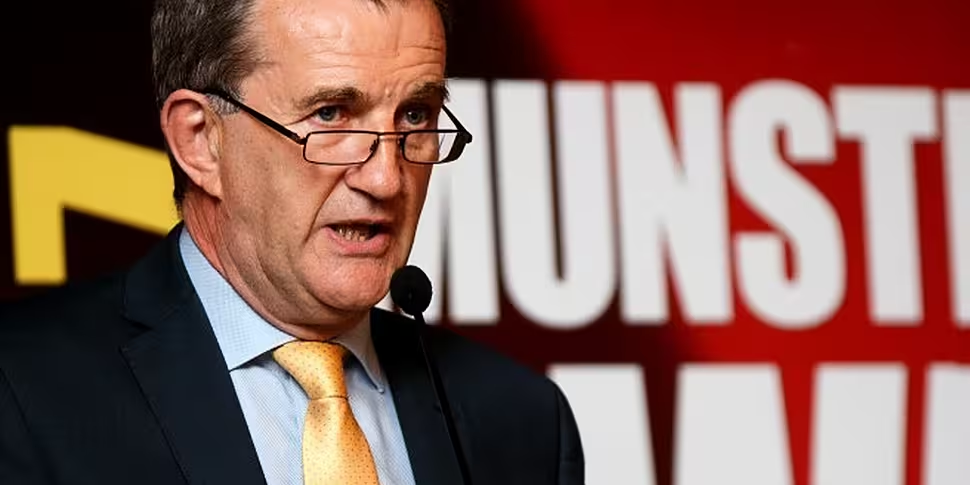This morning on OTB AM we asked a number of questions of the IRFU and Munster Rugby. Philip Browne answered some of the questions here and at 4:30 pm this afternoon Munster responded with the following answers:
Q1) Philip Browne in the IRFU’s antidoping report 2015/16 says “Irish Rugby has a zero tolerance towards cheating in rugby” – When did Munster’s zero tolerance on drugs policy end? If it hasn’t ended how does having a confessed drugs cheat on your team tally with a zero tolerance policy?
We are in line with Irish Rugby on this front and support a zero tolerance approach to doping in Irish Rugby. The ongoing tests, investment and structures in place support all efforts in ensuring rugby is a clean sport in Ireland.
Who in your organisation had final sign off on the decision to offer Gerbrandt Grobler a contract?
With the departure of three senior specialist locks at the end of the 2016/17 season - Donnacha Ryan, Dave Foley and John Madigan - two of whom were internationally capped (Ryan and Foley), long-term injury to lock Darren O’Shea, and backrow specialist (who can also cover lock) Dave O’Callaghan, Director of Rugby Rassie Erasmus and the Munster Rugby Professional Game Board identified Racing 92’s Gerbrandt Grobler as an eligible world-class player with the required skill-set for top flight rugby (Champions Cup and Guinness PRO14) and offered the player a one-year contract for the 2017/18 season.
The Munster Rugby offer and contract was sanctioned by the IRFU, as are all contracts for international signings.
Did that person do due diligence on Grobler’s drug taking?
Yes.
Was the decision to offer him a contract made in the full knowledge that Grobler had used an anabolic steroid?
All parties were aware of Gerbrandt’s admission of guilt to the use of a banned substance in 2014, the two year ban set out by the governing body, and his eligible return to play professional rugby when signing for Racing 92 in October 2016. The decision to offer Gerbrandt a contract was based on requirement, character references, skill-set and experience of playing at top-level rugby.
Did anyone speak to Grobler about his drug taking? If not why not?
Yes.
What is the message to the members of the Munster Academy about drug use when there is someone who used drugs in the first team squad? Do you accept that there are mixed signals there?
There are no mixed messages internally. As an organisation Munster Rugby’s stance on doping is in line with Irish Rugby and World Rugby and we support, and action, all efforts in ensuring and promoting a drug-free sport. All agree, including the player himself, that what he did in 2014 was wrong. Gerbrandt is an example to others, in particular our younger players, as to why you should not dope in sport – he nearly threw away his career because of a bad decision he made. Gerbrandt’s experience is a deterrent to any young player in our system.
Munster Rugby have fantastic support staff in place for players who come through our development system and they are in place to educate players on supplement use and our food-first approach.
Do you accept that the standing of Munster in World Rugby is diminished by having a confessed cheat wear the jersey, who takes responsibility for that?
Not at all. Munster Rugby is a people-first organisation. The character references and recommendations from people we respect were paramount in our decision to recruit Gerbrandt from Racing 92 for the 2017/18 season. Secondly his ability to contribute to the squad was similarly confirmed by those who have previously worked with him. Based on our assessment of the player’s suitability and the knowledge that he had international clearance from World Rugby, Munster Rugby were satisfied to give Gerbrandt the opportunity to continue his chosen career as he moved on from Racing 92. We support Gerbrandt’s inclusion in our squad, and at this stage he has represented Munster in the preseason game against Worcester Warriors in August, and most recently lined out for Munster A against Nottingham in the British & Irish Cup.













